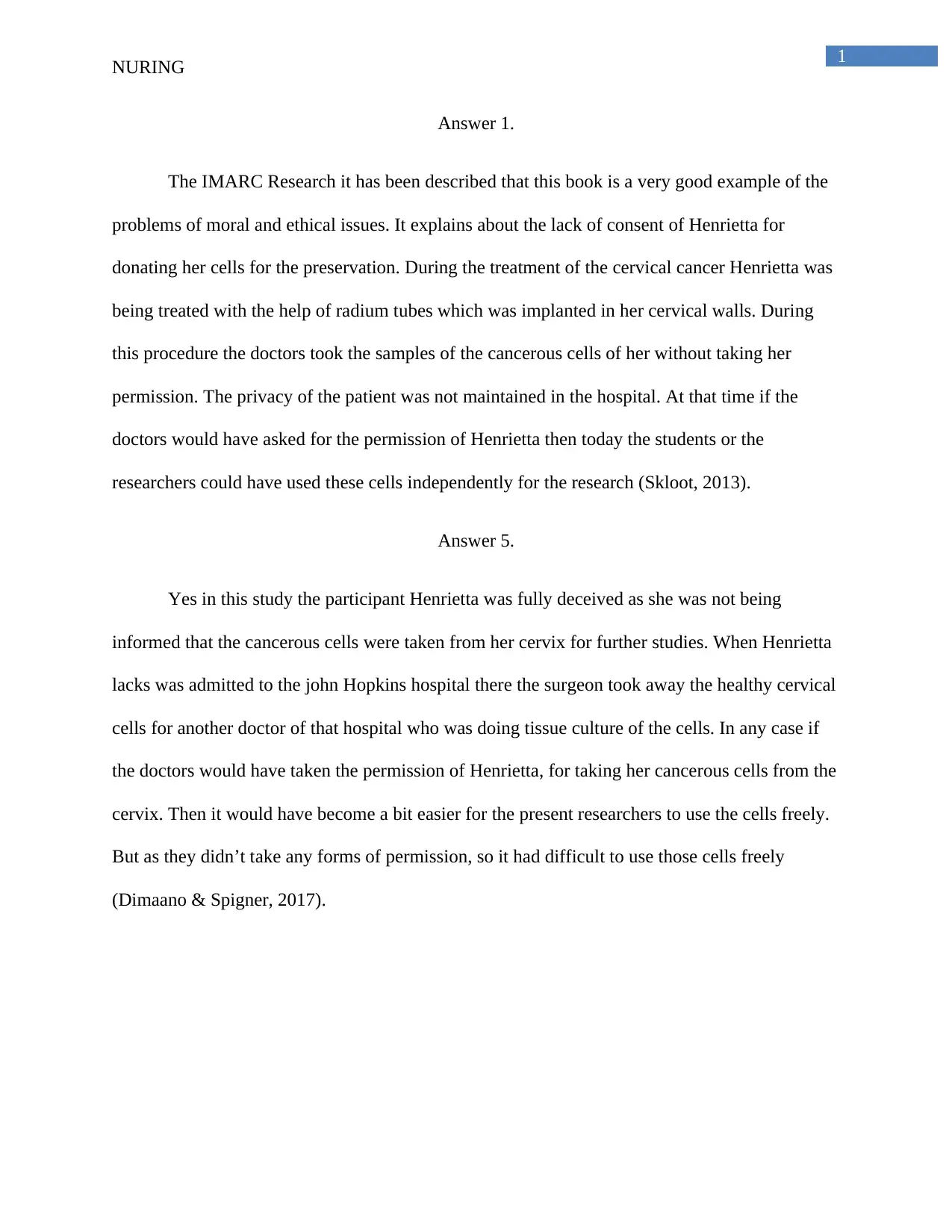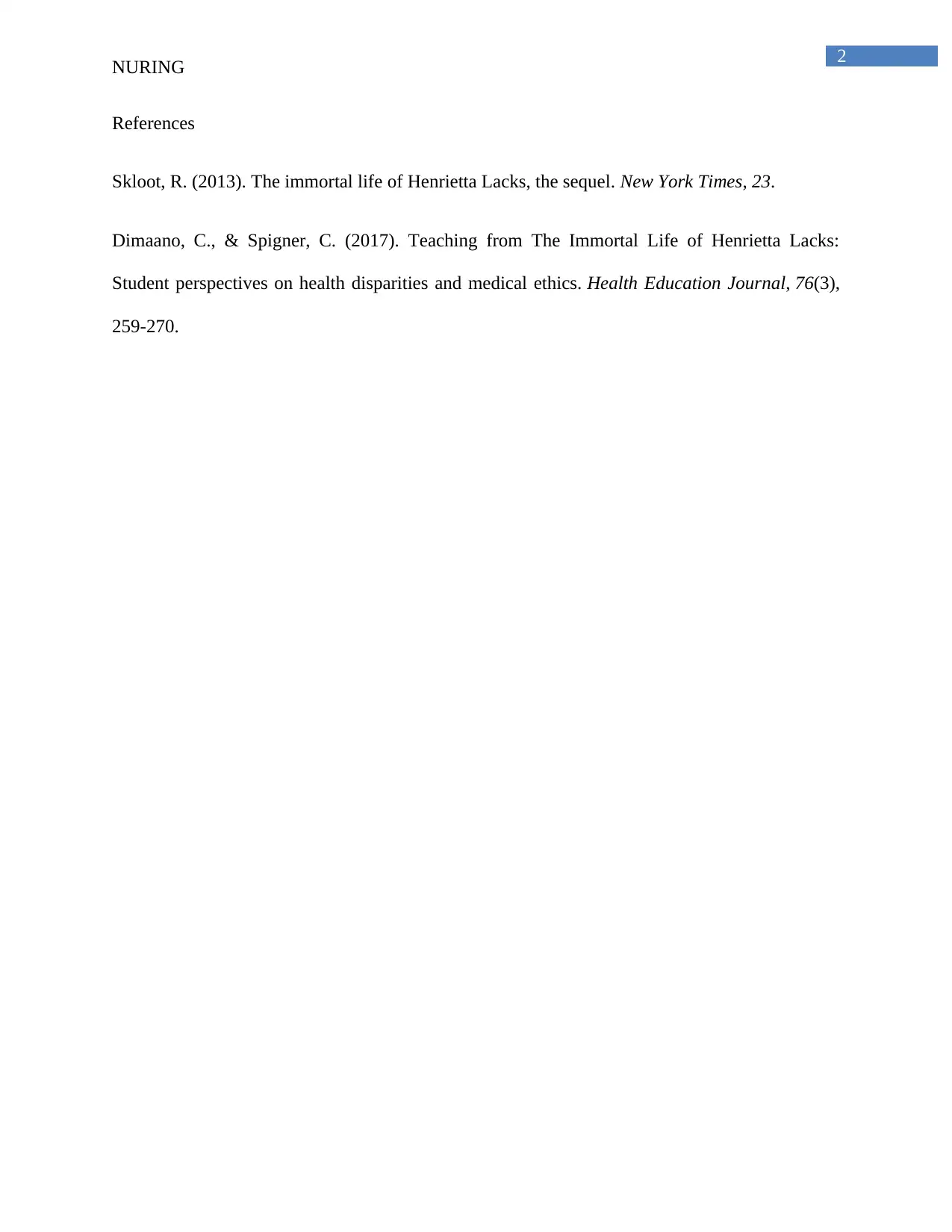Henrietta Lacks: Ethical and Moral Issues in Nursing Research
VerifiedAdded on 2020/04/21
|3
|359
|497
Homework Assignment
AI Summary
This assignment analyzes the ethical and moral issues presented by the Henrietta Lacks case, focusing on its implications for nursing research. The assignment explores the lack of informed consent when Henrietta Lacks' cells were taken for research purposes. It highlights the significance of patient privacy and the impact on current researchers. The assignment references the use of cancerous cells and the ethical dilemmas in the research process. It also discusses the importance of obtaining consent before using any cells for research. The provided solution references the book "The Immortal Life of Henrietta Lacks" and its relevance to ethical considerations in medical research, specifically addressing the ethical implications of using cells without patient consent and the impact of this on the research community.
1 out of 3










![[object Object]](/_next/static/media/star-bottom.7253800d.svg)